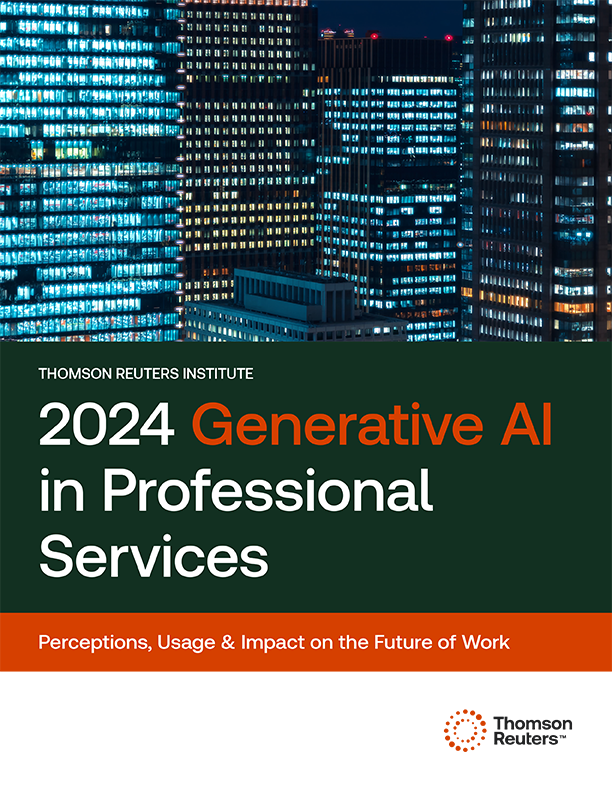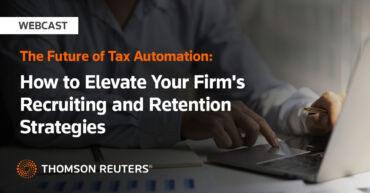Expectations of tax professionals today are higher than ever. Alongside having a head for figures, they need a problem-solving mindset, have commercial awareness, and be able to act as a strategic adviser to the business – all the while staying abreast of fast-changing regulatory developments and a shifting economic landscape. For junior tax professionals entering this complex and demanding world, the challenge can be exciting – but the learning curve can be steep.
Traditionally, junior tax professionals have relied heavily on senior colleagues for guidance and mentoring, benefiting from the wisdom of their experience. And while learning from others will always remain a critical component of early career paths, now other equally powerful education and training methods are gaining traction. Artificial intelligence (AI) is emerging as a valuable learning support tool to supplement the information and insights gleaned from those personal interactions.
AI as a virtual mentor
In an increasingly fast-paced environment, even the most dedicated senior colleagues can struggle to find the time to offer guidance on a range of given topics whenever it is needed. AI can act as a tireless virtual mentor that can answer questions at any time of the day or night, provide instant insights and guide junior professionals through complex scenarios.
For example, since AI can access and analyze vast amounts of tax code data, regulations and case law quickly and easily, junior professionals can use it to find answers to their queries straight away, without having to interrupt their more senior colleagues or wait for them to become free.
Importantly, those answers can be provided in context. By analyzing the specific details of a particular situation, such as a tax return or client scenario, AI can suggest targeted insights and relevant tax treatments that apply to the circumstances in question.
Interacting with AI tools in this way helps tax professionals learn through the guidance and feedback they are given by the AI, in much the same way that they would if interacting with a human mentor, gaining vital practical knowledge and helping to refine their understanding of tax principles.
Accelerating learning and development
What’s more, AI tools often incorporate self-directed learning features. These allow tax professionals to explore specific tax topics, test their understanding through interactive training modules and receive immediate feedback on their progress so that they can apply their learnings to their work straight away and progress at the right pace.
Self-directed learning goes far beyond merely the basics: AI can simulate a wide range of tax scenarios, so that junior professionals can gain experience with complex situations that they might not encounter in practice in the initial stages of their career. Exposing them to such diversity early on helps to prepare them for future challenges and fosters a more comprehensive grasp of tax concepts.
AI can foster independence and build confidence
Using AI to find answers and work through complex issues by themselves can be extremely confidence-building. By empowering junior professionals to tackle tasks independently and gain greater skills and experience as they continuously take on new challenges, they can get further, and faster in their careers and become even more valuable members of the tax team.
They should become more efficient in their work because they are equipped to get on with tasks, enabling them to take on larger workloads without risk of being overwhelmed, and to contribute in a more meaningful way to team projects. Furthermore, they will be able to play a more integral part in client interactions, thanks to their stronger knowledge of tax principles and ability to handle basic enquiries confidently.
With AI taking on such a significant role in supporting learning, senior professionals will have more time to add real value to their advisory efforts by guiding junior colleagues through more strategic tasks and focusing on mentorship opportunities that require advanced human expertise.
Getting the best of both worlds for junior tax professionals
This is critical because – as powerful as AI is – the human element remains intrinsic to training and developing the next generation of tax professionals effectively. While the technology acts as a springboard to accelerate the learning process, there’s no substitute for the pragmatic strategic guidance, assistance navigating complex and nuanced legal issues, and deep understanding of client needs and business objectives that a more senior colleague can provide, one-to-one.
By combining the human touch with machine learning in a complementary way, junior tax professionals will get the best of both worlds, and everyone – colleagues, the business and clients – will benefit. In the future, as AI develops rapidly, the advantages for all will become even more apparent. For example, AI could deliver:
- Personalized learning paths – by identifying an individual’s strengths and weaknesses, AI can suggest relevant training modules to bridge knowledge gaps
- Predictive analytics for tax planning – AI could analyze historical data and market trends to predict potential tax issues and propose proactive tax planning strategies for companies
- Enhanced risk management – AI could identify potential errors or inconsistencies in tax calculations and flag them for review, minimizing the risk of costly client penalties.
AI is ushering in a new era for tax professionals. The collaboration between human expertise and AI promises a brighter future for the whole tax profession, founded on increased efficiency, greater accuracy and a deeper understanding of the ever-changing tax landscape.
Those just starting out on their career paths are at the forefront of this exciting journey. By embracing AI tools and leveraging their virtual mentorship capabilities, junior professionals can turbocharge their learning, become more independent, and build a solid foundation for a successful career in tax.
Special reportFor more AI insights, read our 2024 generative AI report for professionals. |
 |











